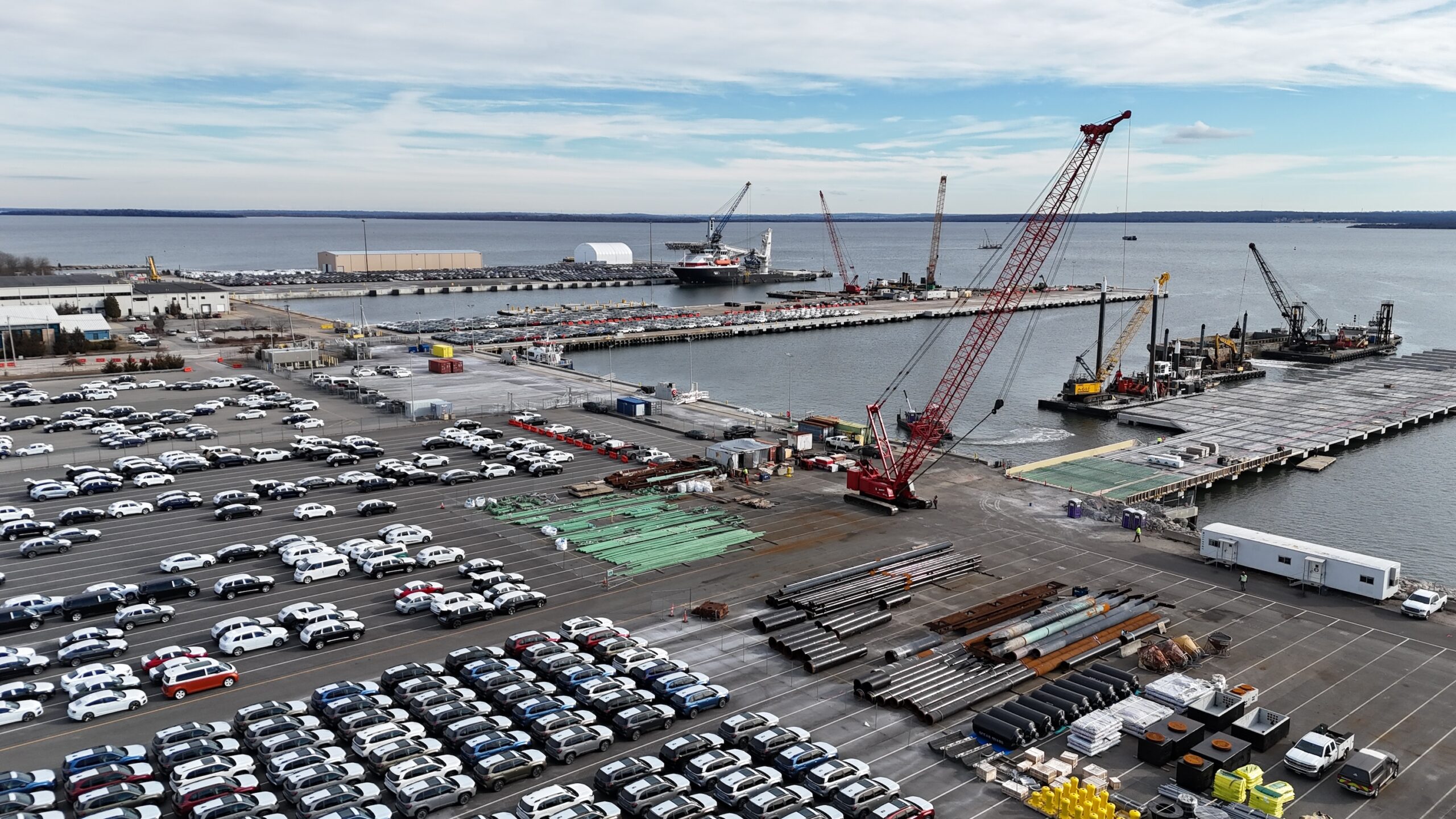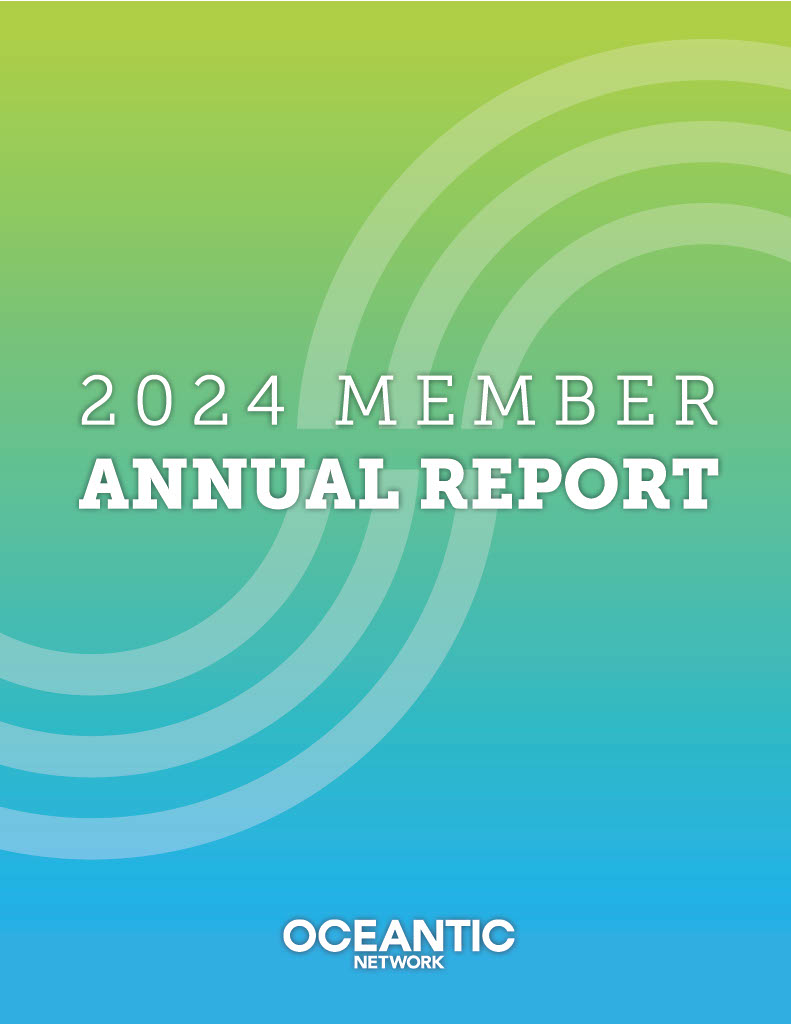Collaborative study co-authored by Oceantic Network and the National Renewable Energy Laboratory identifies needs to achieve wind energy targets
BALTIMORE —Today, the Oceantic Network, in partnership with National Offshore Wind Research & Development Consortium (NOWRDC), the National Renewable Energy Laboratory (NREL) and others, released a report identifying how the United States can develop a robust and equitable domestic supply chain required to achieve the national offshore wind target of 30 gigawatts (GW) by 2030.
This report describes how the United States could develop a fully domestic offshore wind energy supply chain. It discusses barriers that could prevent or delay supply chain expansion and offers potential solutions that could help overcome these challenges. The report highlights major considerations for developing resilient, sustainable, and equitable manufacturing capabilities. Finally, it estimates the number of required major component manufacturing facilities, ports, and vessels that would need to be developed by 2030 under a domestic supply chain scenario that supports an annual deployment of 4-6 GW per year. This scenario also guides discussion regarding the investment, development time, and workforce growth that could be required to develop a domestic offshore wind supply chain. In addition, the report provides a host of proposed actions policymakers, industry and supply chain companies can take to build out a sustainable domestic supply chain. The full report Supply Chain Road Map for Offshore Wind Energy can be found online.
“A manufacturing supply chain is already emerging in more than a dozen locations up and down the U.S. coast in support of the offshore wind industry, which will lead to thousands of well-paying jobs,” said Ross Gould, vice president for Supply Chain Development and Research at Oceantic Network. “To meet our ambitious clean energy national goals, American manufacturers must play a larger role to accelerate our transition. This road map lays out the challenges and collaborative actions needed to bring more domestic companies into the supply chain and the opportunity those businesses bring to building out the U.S. offshore wind industry.”
This project is a partnership between the Oceantic Network, the National Renewable Energy Laboratory (NREL), DNV, the Maryland Energy Administration (MEA), the National Offshore Wind Research & Development Consortium (NOWRDC), the New York State Energy Research and Development Authority (NYSERDA), and the U.S. Department of Energy (DOE).
“The opportunity to create a resilient and equitable domestic supply chain is one of the most exciting aspects of our offshore wind goals,” said Matt Shields, Senior Offshore Wind Analyst at NREL. “This supply chain would increase our chances of meeting the 30 GW by 2030 target, create a huge number of jobs and economic benefits, and most importantly, position the sector for sustainable growth beyond 2030. This report identifies critical actions that we need to take as an industry to develop the supply chain quickly, but also strategically and equitably.”
“Developing our nation’s vast offshore wind resources will provide reliable clean energy to coastal communities and help us reach our climate goals. It also presents a significant opportunity to create tens of thousands of good-paying jobs and expand domestic manufacturing across the country,” said Alejandro Moreno, Acting Assistant Secretary for Energy Efficiency and Renewable Energy at the U.S. Department of Energy. “With the help of the roadmap laid out in this report, we can catalyze progress to realize this immense potential.”
“To fully realize the potential of offshore wind energy in the United States, it is important we understand the gaps and needs of the current offshore wind supply chain. By understanding the needs of the industry, we can target investments to local businesses and workforce which create economic opportunities while achieving our goals of cleaner, more reliable energy. MEA is proud to participate in a study that brings us closer to realizing the economic and environmental promise of offshore wind,” said Maryland Energy Administration Director Paul Pinsky.
NYSERDA President and CEO Doreen M. Harris said, “Offshore wind is a cornerstone of New York’s clean energy transition that will deliver nine gigawatts by 2035, and grow a high-tech industry that will attract billions in investments and thousands of family-sustaining jobs. This report is the result of significant private-public collaboration and lays out a pathway to cultivate a long-term domestic supply chain here in the U.S.”
The full project summary will be released by NOWRDC in late winter of 2023.



